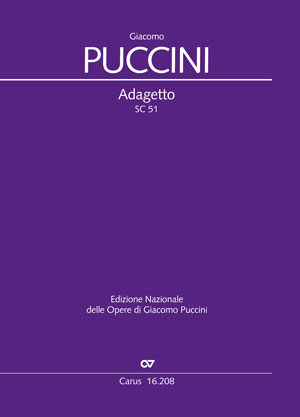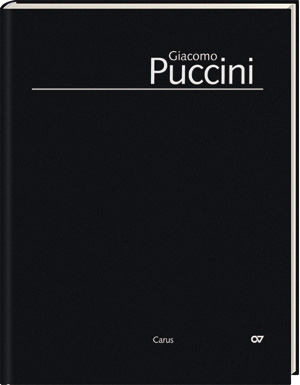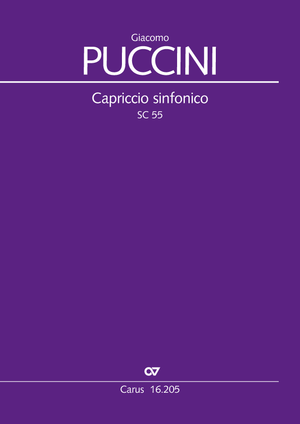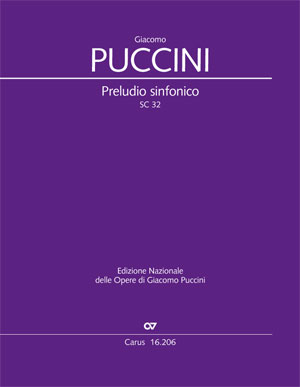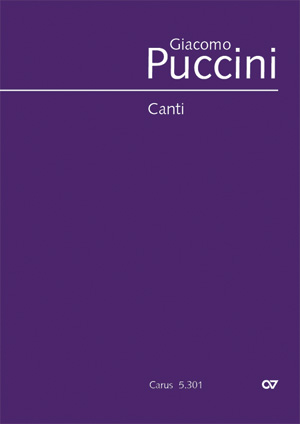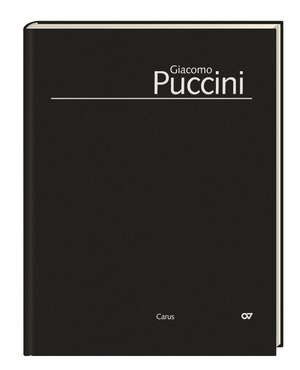Puccini’s Adagetto for small orchestra (without trumpets, trombones, and timpani) was probably written in the early 1880s while the composer was still a student in Milan. A few years later he reused the work’s theme in his opera Edgar, where it appears in Act 3 during Fidelia’s aria “Addio, mio dolce amor” as she laments Edgar's supposed death. This touching piece is now available as a separate edition from Volume II.1 of the Edizione Nazionale delle Opere di Giacomo Puccini (Carus 56.002) with all orchestral parts.
Purchase
Additional product information
-
Composer
Giacomo Puccini
| 1858-1924Giacomo Puccini came from a dynasty of church musicians who worked in the Tuscan city of Lucca. His Messa a 4 con orchestra, premiered there in 1880, seemed to point him toward a career in the same direction, but directly after this, he went to Milan Conservatoire with the aim of becoming an opera composer. His only independent orchestral works were written there as student works – the Preludio sinfonico (1882) and Capriccio sinfonico (1883), as well as some of his 16 complete surviving songs for voice and piano (Canti), which he composed, with frequent references to his operas, almost throughout his career. He achieved a breakthrough as an opera composer with Manon Lescaut (1893); between 1893 and 1904 he composed La Bohème, Tosca and Madama Butterfly, which remain his most frequently-performed works today. In recent years there has been a growing realisation that Puccini's entire output requires reappraisal. And so, he has increasingly come to be understood as a musician searching for a way forward into the modern age. Personal details
-
Editor
Dieter Schickling
| 1939-2023Nach dem Studium der Germanistik,Anglistik und Philosophie und der Promotion in Germanistik war Dieter Schickling hauptsächlich für das Fernsehen des Süddeutschen Rundfunks Stuttgart tätig, zuletzt als Leiter der Hauptabteilung Bildung, Spiel, Unterhaltung. Seine intensive Auseinandersetzung mit Musik führte zu langjähriger Forschung über Puccini,die in verschiedene Publikationen mündete, u.a. das erste umfassende Werkverzeichnis Puccinis, 2003. Personal details
Frequent questions about this work
 There are no questions and answers available so far or you were unable to find an answer to your specific question about this work? Then click here and send your specific questions to our Customer Services!
There are no questions and answers available so far or you were unable to find an answer to your specific question about this work? Then click here and send your specific questions to our Customer Services!


